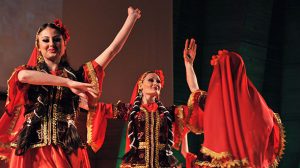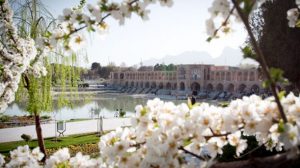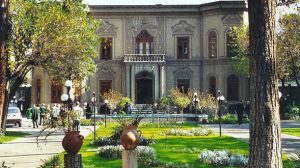Behind the Headlines – Wednesday 21 August 2019
Jamshid Chalangi:
Tonight we will find out how the rising cost of living and corruption in Iran is affecting the lives of the citizens as the regime’s nefariousactivities continues in the region.
Also, the infighting among the regime’s factions has increased with each faction claiming that they are exposing their rival’s corruption in the interests of justice and the Iranian people.
Have the sanctions limited the economic interests of the clerics in Iran?
Khamenei has once again dismissed the US threats as a bluff while anIranian army general has said that Washington is scared of Iran’s military might.
Our guests tonight to discuss these issues are Iraj Mesdaghi and Houshang Amir Ahmadi.
Iraj Mesdaghi:
I believe the current rivalry among the regime’s factions is about their concern for the post-Khamenei time and which one of them could have the upper hand in the regime’s political structure after his demise.
Khamenei has asked the judiciary to uproot the corruption among the regime’s top officials but the head of judiciary Ebrahim Raeesi had himself been the deputy head of the justice department for more than five years and had been involved in many of the regime’s activities.
Recently the judiciary arrested Akbar Tabari on corruption charges but he had been a close associate of Raeesi himself for many years. If Raeesi knew about Tabari’s corruption then and kept silent then he is involved in his case and has betrayed the Iranian people and must be brought to justice.
In reality, today the Revolutionary Guards are the most corrupt entity in Iran by squandering the Iranian people’s wealth and human resources for their nefarious actions across the region, which have nothing to do with the interests of the Iranian people.
Houshang Amir Ahmadi:
I respect Mr Mesdaghi’s opinion but I believe the real problem of Iran is the clerical regime and the Guards and security forces are not the guilty party for the country’s numerous problems.
We will not solve Iran’s problems unless we focus on the role of the clergy in Iran’s politics.
This is a reactionary and backward religious regime, like the one that existed in Europe in the 13th Century.
They ruled through their religious institutes and the current regime in Iran is doing exactly the same.
However, the regime is falling part as its factions cannot live alongside each other any more and up to 90 percent of the Iranian people cannot live with the regime as a whole.







Add Comment